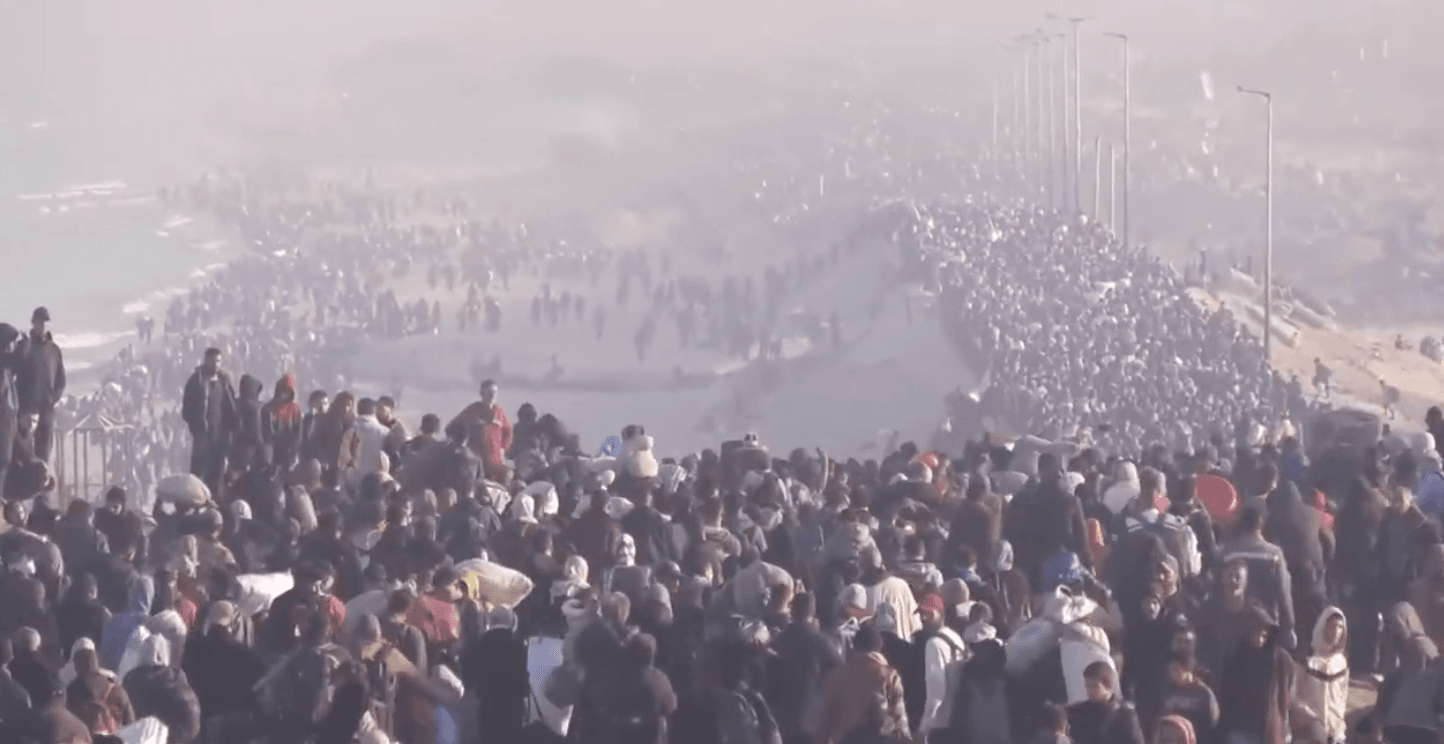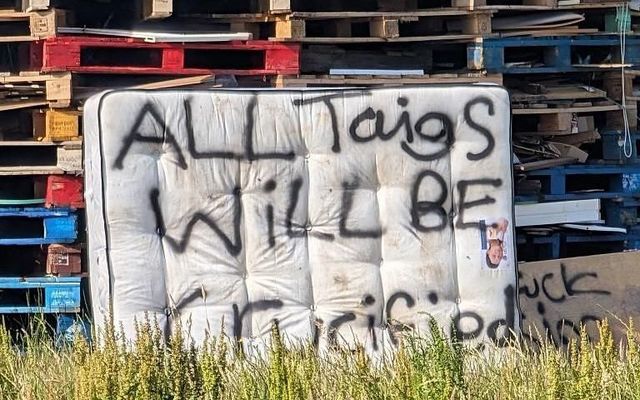THE English love a good mystery. From Agatha Christie to PD James, From Midsomer Murders to Death in Paradise, there’s perhaps no other nation on the planet so enthralled by the lure of a stabbing in the billiards room, a poisoning at the dinner table, or a shooting in the library.
At the risk of having my membership of the Roddy’s revoked, I have to confess to enjoying a good drawing room murder mystery as much as any Englishman. Over the festive season, I marvelled at Hercules Poirot’s detective acumen in the Mystery of the Christmas Pudding, but more compelling even than the hunt for a killer was the deep satisfaction of a place on the sofa in front of a blazing fire in a country house amongst a collection of cosily familiar strangers.
We were presented with a deadly mystery of a different kind on BBC Radio 4 just after eight on Tuesday morning. Nick Robinson, co-host of the BBC’s flagship Today programme, laid before us an exotic tale of death and skullduggery from the Middle East; a story soaked with enough exotic secrets and Arab intrigue to add another year to the Thousand and One Nights.
So join me on the magic carpet as we attempt to figure out who did what and to whom. The place: Gaza. The event: Expelled people returning in their hundreds of thousands to the devastated north where countless bodies still lie under the rubble. Take it away, Nick...
“They queued in their thousands, laden with bags and bedding, all they could carry or pile on top of overcrowded cars or donkey carts. The great return to the north of Gaza has generated both excitement, to have the chance to go home to be reunited with friends and family, and sadness when confronted with the reality that home is nothing like it was before the war.”
Sadly, there is no clue here as to why things are not like they were before “the war” or who brought about the stomach-churning new reality. So we read on...
“Houses and apartments have been destroyed. Bombs and shells lie unexploded in the rubble and there are often no services, no running water, no schools, only limited health care.”
Who destroyed the homes? Who dropped the unexploded bombs and shells that lie in wait for the unsuspecting? Who turned off the running water, wrecked the schools and disappeared the health system? I have a few ideas, but since there’s still no concrete proof pointing to the guilty party, I’ll continue to keep them to myself...
“The BBC is still not permitted to enter Gaza to report on what’s happening there now, or what’s happened in the past, as has has been the case for the past fifteen months.”
Ah, now we’re starting to make progress. I reckon if between us we can find out who it is that doesn’t want this story to be told, who it is that is so desperate to hide the grisly facts, we can get closer to the truth...
“But I have been speaking to one of those who stayed behind, in [indistinct] in northern Gaza, [indistinct name]. You have have heard him a number of times in recent months, including on the day last October when his brother was killed.”
Things are starting to hot up. If only we can somehow figure out how this man’s brother was killed then the identity of the killer must surely be that little bit closer. ‘Killed’ suggests he didn’t die peacefully in his bed. But was it a gardening accident? A fall? Or might it be that something altogether more sinister has taken place here?
“Yesterday he was reunited with those of his family who fled to safety in the south. I asked him where he, where they, were now living.”
‘Fled to safety’. Could it be that this man’s family left their home because they felt their lives were in danger? If so, could that danger be connected to death of his brother? Answer these questions and surely we’re closer to solving the mystery.
“You stayed in the north all the time through the conflict. What was it like being reunited with those who had fled who returned home yesterday?”
So these obviously frightened people returned home. That can only mean that the shadow that hung over them had somehow been removed, either temporarily or permanently. Why? Did something happen to make the killer stop?
“You now have to live in half a home, there’s not much running water, you know that there are bombs and shells in the rubble of other people’s houses.”
Answer these two question and I believe we have nearly cracked the case: 1. What happened to the other half of this man’s home? Has it been stolen? Is the rising damp unbearable? Is it an Airbnb? 2. Who put the bombs and shells there? Was it the butler? The smarmy nephew with money troubles? The glamorous blonde flirting with the infirm patriarch in the bath chair?
“Can you build a life for your family there? Is it safe? Is it possible to carry on living in the north of Gaza?”
The man’s family are home, but a question mark remains over their safety. The killer has stopped, but what is it that could make them strike again? We need to know.
“I’ve also been speaking to Jonathan Crickx, who’s the chief of communications at Unicef Palestine. He’s based in the south of Gaza, but he and his team have been giving aid, help and advice to those making the long journey north. How big a worry is unexploded bombs and shells in the rubble of people’s houses and apartments?”
It’s the question that keeps coming up – the question that never finds an answer. As handkerchiefs have initials and gold cigarette cases have monograms, could it be that by examining the intact 2,000lb bombs we may find clues that lead us directly to the bomber? It’s a crazy idea, but it just might work...
“When so many people are moving at such speed there must be a danger that people lose their families, lose each other. Are you able to help them with that?”
Brollies, briefcases, coats and bags are often left on trains. Could it be that there’s be a kind of refugee lost and found where we could find witnesses with vital clues?
“You describe powerfully people’s desire to have a tent on the rubble of their own homes rather than somewhere else.”
Allowing tents on top of the rubble? This culprit has a heart and that might just their undoing.
“How would you describe the mood of the people that you’re dealing with? Is excitement too strong a word, is it relief? Is it just determination to be back home?”
Could the excitement lead to the throwing of a party? If so, surely there are clues to be gleaned by moving among the happy, tipsy cocktail crowd. Might the relief loosen a few tongues leading someone to mention the name that continues to elude us?
“Now aid is getting in in quantities not seen before but there is still, as you will know all too well representing Unicef, a huge argument about another UN agency, UNRWA, which the Israeli government is set to ban and set to ban this week.”
At long last, a name, a solid clue that has blown the case wide open and shone an unforgiving spotlight on a suspect: UNRWA.
NB: This is the Radio 4 script word for word, in its entirety.






